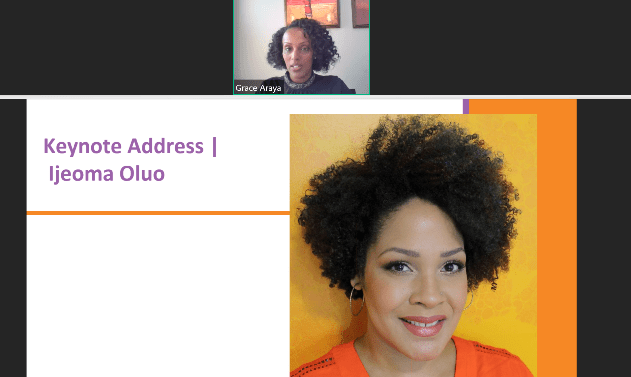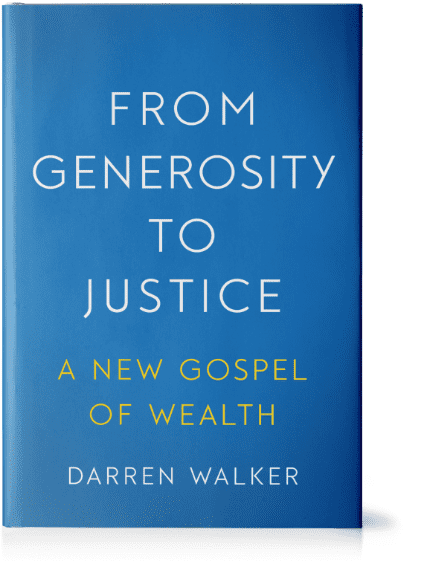“You have to act as if it were possible to radically transform the world. And you have to do it all the time.”
—Angela Davis
Community Systems Statewide Supports (CS3)
On June 8 – June 12, the CS3 team hosted its annual Partner Plan Act conference in a virtual setting for the first time. The conference, Equity From the Start: Shifting from Intentions to Outcomes consisted of 14 sessions, including a keynote address by Ijeoma Oluo and the closing panel featuring Dr. Jamilah Jor’dan, Dr. Tiffany McDowell, Sergio Hernandez Jr., and FaKelia Guyton, moderated by Chicago United for Equity (CUE). The week was well-attended with more than 500 virtual attendees in total!
Missed a session? Don’t fret! You can watch the Keynote Address, Closing Panel, and 10 breakout sessions on our Partner Plan Act website.
Requests for Proposals for the Community Parenting Saturation Project Application is Open
Illinois Action for Children (IAFC) is pleased to announce the launch of the Community Parenting Saturation project. IAFC has released a Requests for Proposals for communities to apply for funding to join this innovative new project.
The Community Parenting Saturation Project aims to launch an initiative in two communities–one in the city of Chicago and one outside the city of Chicago–that:
-
Demonstrates what a saturated approach to family engagement strategies within a community would look like; and
-
Tests whether this approach truly leads to measurable changes in parenting beliefs and skills as well as prepares children for kindergarten.
Priority will be given to applicants demonstrating a strong and compelling need for this project in their community and have an existing early childhood community collaboration.
You can also download the Grant Application Narrative and the Grant Application now, for more information on eligibility and grant program details.
The deadline to apply for this opportunity is Friday, August 28, 2020. Completed applications must be submitted electronically to choua.vue@actforchildren.org.
IAFC will host an information session about the RFP on Wednesday, July 15, 2020 from 10 – 11:30 a.m. Register here to join the webinar.
If you have any questions or concerns, please feel free to reach out to Choua Vue, Vice President of Community Impact at choua.vue@actforchildren.org
Collaboration Highlight
Oak Park Early Childhood Collaboration Steps Up to the Challenge During These Challenging Times
The COVID-19 pandemic has completely changed the way we live, as we are facing unimaginable loss and an unprecedented economic downturn simultaneously. At the same time, the killing of George Floyd by Minneapolis police, and the ensuing uprisings in response to systemic racial inequities, have shaken the United States and the world. We now live in a very different reality than we did only four months ago.
When asked how the Oak Park’s Early Childhood Collaboration has pivoted to continue to meet the needs of their community during our current environment, Heather Duncan, the Collaboration’s Director of Early Childhood immediately referenced John Borrero’s, the Early Childhood Collaboration’s Executive, public statement entitled Why George Floyd Matters.
John begins his statement by describing his process of unpacking “a lifetime” of sadness and frustration triggered by the murder of George Floyd. He goes on to remind everyone that George Floyd’s death is an early childhood issue because systemic inequities that perpetuate negative life outcomes for black children and families exist in our early childhood systems. The statement ends in a call to action inviting:
- Parents to share experiences of when their children have been “deprived of opportunities because of their race” with the collaboration
- Program staff to let the collaboration know how they can help them learn more about racial equity in the context of early childhood education
- Program directors to request training for their staff to help them examine classroom practices and give them strategies to help brown and black children thrive
During this time the collaboration has also shifted to a virtual platform—all their collaboration meetings and their family and leadership engagement workshops are virtual. Heather explains, how they have been able to capitalize on the increased access people have to each other right now.. Recently, their series of virtual parent engagement workshops had more than 100 participants, an increase over the formerly in-person workshops.
The collaboration also added new resources to meet the changing needs of children, families and early childhood providers. They launched Ready for K pilot, a family engagement curriculum delivered via text messages. Additionally, the collaboration collaborated with Erikson Institute to offer individual and group telehealth counseling to address the mental health and emotional support needs of children and adults.
As a resource for providers, the Early Childhood Collaboration developed a series of targeted online newsletters and on-demand trainings. The new initiatives provide people with updated early childhood specific information and resources in our fast-changing environment. In response to community needs, the collaboration held a virtual town hall for Oak Park and River Forrest providers to hear about what they need to reopen safely. Every participant received a goody box full of supplies including masks, disinfectant, and hand sanitizer.
The collaboration also experienced some reshuffling due to the shelter in place order. The pandemic forced them to cancel a racial equity summit planned for this spring. In light of this cancelation, the collaboration decided to spend their time setting up and recalibrating a conversation for its members and partners about where the collaboration stands on equity issues. “racial equity] is part of the collaboration’s DNA. It is in our mission, on our website, and in our words. We decided a conversation is needed in this moment to have intentionality attached to the work that the collaboration is doing,” said Duncan.
Duncan is proud of the work her and her colleagues have pulled together during this time and is hopeful about the future of the Oak Park and River Forrest community. The one thing about the entire situation that I find interesting is that all of these pivots are really us stepping up and becoming our best selves really quickly—actually getting things done we’ve been meaning to get done, and we will come out of the other side better because of the pivoting we’ve had to do,” said Duncan.
If you would like your collaboration’s work to be highlighted in the Partner Plan Act Newsletter, please email us at partnerplanact@actforchildren.org.
Resources
COVID-19 Resources for Communities
Stay up-to-date with COVID-19 resources. The Governor’s Office of Early Childhood Development is the central hub for relevant resources for children, families, providers, and communities. To learn more, click here. You can also visit Illinois Action for Children’s COVID-19 microsite here for the latest updates on CCAP, essential workers, webinars, and more.
From Generosity to Justice: A New Gospel of Wealth
In From Generosity to Justice: A New Gospel of Wealth, Darren Walker, president of the Ford Foundation articulates a bold vision for philanthropy in the 21st century joined by an array of thinkers, activities, and leaders from every field, sector, and walk of life. Walker pushes for answers to a vital question: If there’s a continuum between generosity and justice, how do we push our work closer to the latter?
All members of society must recognize their privilege and position, address the root causes of social ills, and seek out and listen to those who live amid and experience injustice. These are all things that collaborations seek to address through community systems development work and many of the lessons in this book translate to the issues we are all trying to tackle in our communities and in our country.
What Does it Take to Embed a Racial Equity and Inclusion Lens?
Living Cities harnesses the collective power of philanthropy, financial institutions, and local governments to close racial income and wealth gaps in American cities. What Does it Take to Embed a Racial Equity & Inclusion Lens? is a report that can be useful to collaborations and communities who are wrestling with how to better operationalize racial equity and inclusion within their own work.
This report shares key findings, takeaways and recommendations from the overall racial equity learning process, frameworks for action, toolkits and resources, and more. Collaborations can learn some key actions needed to be taken in order to embed a racial equity and inclusion lens from the work that Living Cities has already done. For example, some recommendations include:
- We need to treat racial equity as a real competency and skill.
- “Embedding” a racial equity and inclusions lens must be an overarching framework in every aspect of our work.
- It is important to approach racial equity and inclusion work through a systems change framework.
- Remember that data matters, but only in service of outcomes.
- We all must be able to effectively communicate about racial equity and inclusion.
To learn more and read the full report, click here.



